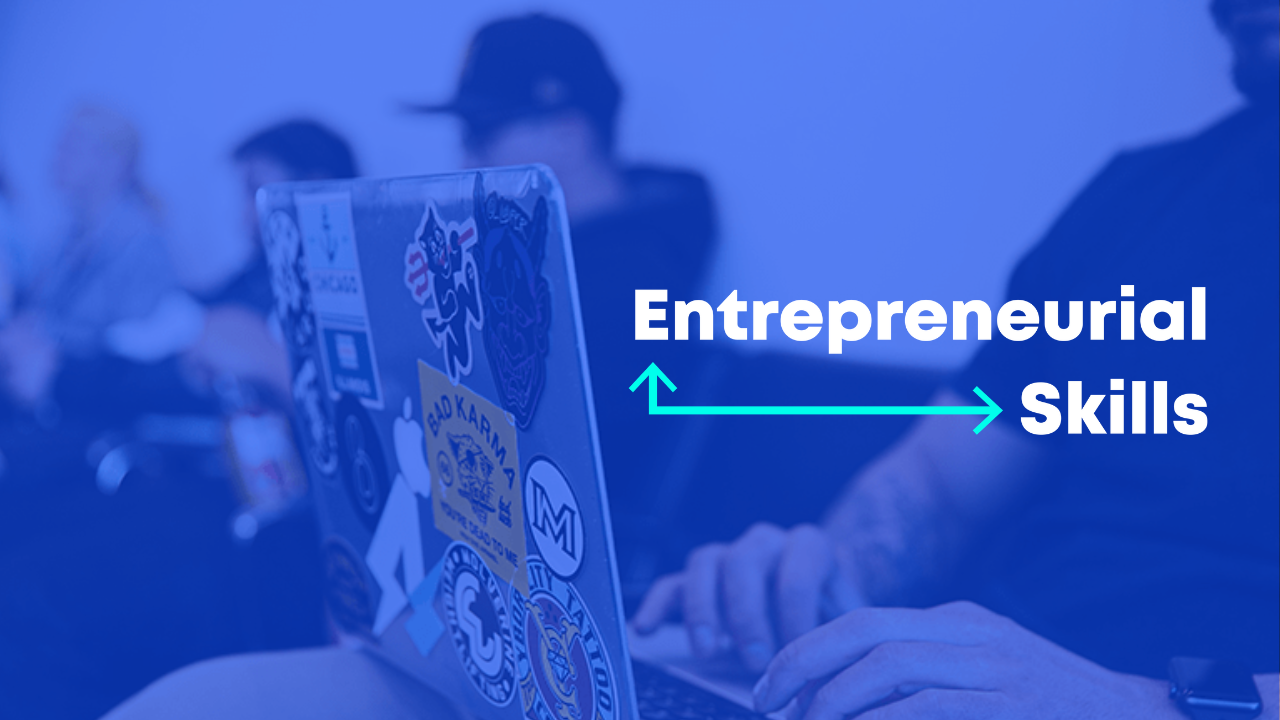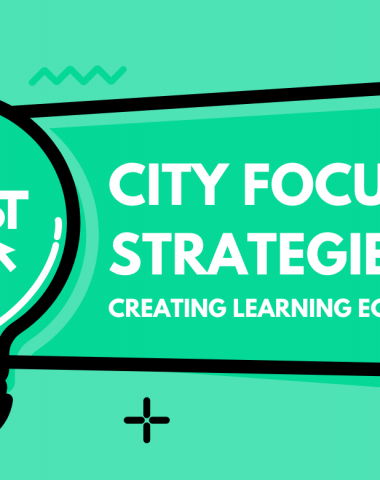Dutch way to success: entrepreneurial skills
Creativity, problem solving, and the willingness to take educated risks are all transferable talents that can help you succeed in a variety of fields. They are closely connected to entrepreneurial skills which are valuable in and of themselves, but they also contribute to the health of the economy. Having an entrepreneurial mindset is a powerful force that may lead to the development of groundbreaking ideas and the launch of entirely new businesses. In turn, this can contribute to a flourishing economy and the production of new jobs.
There are many areas of life where entrepreneurial skills would prove useful, not just for those who are looking to create their own business. They can make people more marketable in the workforce, boost job happiness and success, and stimulate innovation and economic development. Investing in one’s own and the public good by learning entrepreneurial skills is a no-brainer.
EntreComp: the entrepreneurship competence framework
Several programs have been launched in recent years to encourage and foster entrepreneurial spirit and expertise across Europe. The development of the entrepreneurial capacity of European citizens and organisations has been one of the key policy objectives for the EU and Member States for many years, and is one of the eight Key Competences for Lifelong learning.
As a result, The Entrepreneurship Competence Framework (EntreComp) was established by the Joint Research Centre in collaboration with the DG Employment, Social Affairs, and Inclusion. EntreComp defines entrepreneurship as a core competency that can be developed throughout a person’s life, and it identifies and defines the characteristics of entrepreneurs in order to provide a standard framework for programs that aim to teach these skills.
Unleashing entrepreneurial examples in the Netherlands
Several abilities are essential for success in the business sphere, and the Netherlands is well-known for its innovative spirit. The Dutch Participation Act and the Job Agreement are two laws that are crucial to the Dutch entrepreneurial system. Entrepreneurs in the Netherlands should give serious thought to these legislative frameworks since they lay the groundwork for employee participation and cooperation inside enterprises.
The Dutch Participation Act was enacted in the country in 2001. Participatiebedrijven or “participation companies” are businesses in which workers have a voice in management and decision making. Such organisations aim to boost worker happiness and output by encouraging communication and collaboration among employees.
An additional critical element of Dutch entrepreneurship is the Contract for Employment (CAO). The terms and conditions of employment are spelled forth in this legally binding contract between the company and its employees. The CAO addresses topics including compensation, hours worked, and vacations, and is a useful tool for ensuring that employees are treated fairly.
Stichting Rotterdam Kookt – a social enterprise that originated from a community of ideas in response to the increasingly individualistic approach to people and society. It plays the role of a Learning Practice Center in cooperation with the municipality of Rotterdam. Rotterdam Kookt does this in concrete terms by helping Rotterdammers who are not connected to the labour market to develop in the hospitality industry and asks for a social commitment in return. The enterprise sees cooking as a means to achieve social goals and at the same time it also offers a solution for the shortage of catering staff.
If you believe in people’s talents, as an employer, you can make a difference by offering job seekers an opportunity. Another great example is Patijnenburg which helps people with different backgrounds who cannot do this on their own find suitable work in line with their capabilities and talents by guiding and encouraging their development on a professional and personal level. Working with Patijnenburg does not only mean corporate social responsibility but also meeting employer obligations under the Participation Act and the Job Agreement. According to it, employers in the market must supply 100 000 jobs for work-disabled people by 2026.
Digital technology for pathways to entrepreneurial skills
Funding for adult education and educational initiatives is also available through the European Union’s Erasmus+ program. The project “Digital technology for pathways to entrepreneurial skills” is based on competencies, qualification and endorsement frameworks, when partners connect existing entrepreneurial adult education programmes for disadvantaged adults with fewer opportunities. They use entrepreneurial frameworks to recognise, endorse, and acknowledge prior learning, on-the-job learning and learning in the educational programmes.
Project partners use several digital solutions to upskill educators and learners’ experience. Cities of Learning platform supports the project in making learning open, accessible and inclusive. The digital platform has essential functionality to create thriving learning ecosystems:
- learners can use an interactive map to easily navigate through learning pathways in the territory, searching and filtering learning Activities offered by various Organisers;
- organisers can create Learning Playlists by combining local and digital activities organised into thematic learning pathways;
- learners can collect digital Open Badges to record, certificate and showcase their experiences, skills and achievements on their digital portfolio. Organisations and institutions that use the platform can access data and analytics about learning and impact.
The Cities of Learning platform offers organisers to add skills and competences from the EntreComp: the European Entrepreneurship Competence Framework. EntreComp is a reference framework to explain what is meant by an entrepreneurial mindset.
Another important component is Open Badges – a global standard to recognise and verify skills, learning and achievements. They are digital micro-credentials that may represent identity, interests, competences and achievements across the web. It is also something that Gemeente Rotterdam – the municipality – and its workers use. Isabel Jessurun Dos Santos Soares, who works with the social entrepreneurs in the learning practice centres, tries to bring adult job seekers closer to the labour market:
“We do this by teaching them employee skills at a location known to them in the neighbourhood. Each skill learned is rewarded with an Open Badge, so they feel valued. It’s empowering.”
It is clear that developing entrepreneurial skills is a worthwhile investment for individuals and society as a whole. By mapping existing materials and providing tools and support to learners of entrepreneurial skills, these initiatives are helping to drive both personal satisfaction and innovation in Europe.
Sources:
- Business.gov.nl, “Participation Act and jobs agreement”: https://business.gov.nl/regulation/participation-act/
- European Commission, “EntreComp: The Entrepreneurship Competence Framework”: https://ec.europa.eu/info/publications/entrecomp-entrepreneurship-competence-framework_en
- European Commission, “Entrepreneurship in Europe”: https://ec.europa.eu/info/publications/entrepreneurship-europe-2019_en
- European Commission, “Entrepreneurship Skills: A Key to Success”: https://ec.europa.eu/info/publications/entrepreneurship-skills-key-success_en






Add Review